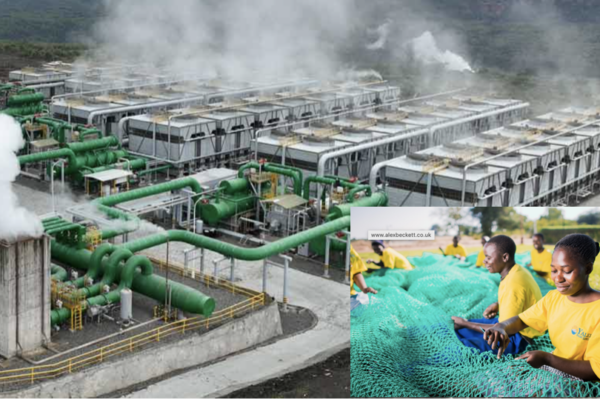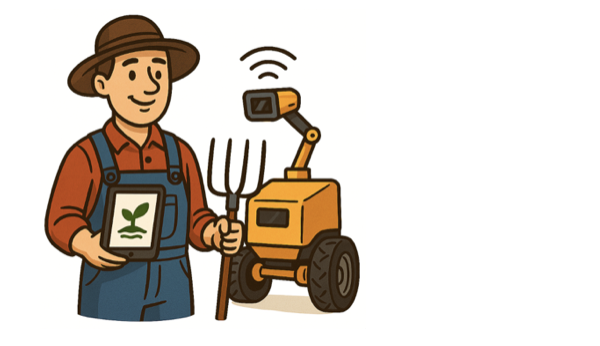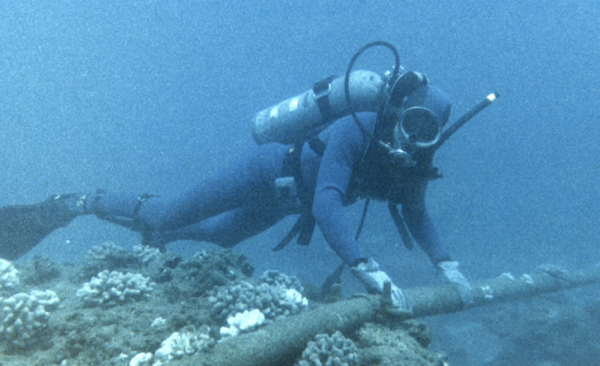Readers will see in our report presented to the Danish government on how greenhouse emissions from Denmark’s agricultural production can be reduced by the introduction of a carbon tax. This tax proposal could be combined with the innovative work of a Swedish company, Volta Greentech. They have succeeded to achieve significvant methane reduction using seaweed as a fodder additive. This work has now been recognised by governments in Sweden and in the UK.
Volta Greentech have developed their project based reseach that had started a decade ago involving reducing methane emissions from ruminants – the largest source of methane emissions in the US, (c. 25% of methane emissions), which corresponds to c. 3% of human activity greenhouse gas emissions.
Improving feed efficiency is likely the most effective methane mitigation strategy at the global scale. Recently, algae-based feeds have gained attention because they may be able to not only suppress methane emissions, but also to improve animal feed efficiency.
There is growing interest in feeding seaweeds to dairy cows because of their effects on methane suppression (Machado et al., 2014) while improving animal health (Antaya et al., 2015).
The red seaweed species Asparagopsis taxiformis showed up to a 99% reduction in methane emissions (Machado et al., 2014; Kebreab et al., 2019). However, this seaweed species does not grow in colder climates, has been shown to be highly invasive and to produce a poor biomass.
Sweden’s Environmental Protection Agency (Naturvårdsverket) has more recently mentioned Volta Greentech’s innovative seaweed-based solution as a promising avenue for significant methane reduction.
Their report proposes urgent governmental support to incentivize the uptake of such feed additives.
There has been only a 2% reduction in the EU’s agricultural emissions since 2005. Methane, is a major cause of global temperature increases. Most of this methane comes from cows and other ruminants.
Naturvårdsverket’s report says that methane-reducing feed additives are one way to cut emissions from animals, which accounts for approximately 70% of Sweden’s methane emissions.
The report prioritizes two additives, 3-NOP and seaweed. Naturvårdsverket describes these additives as a startegic key the Swedish government for reaching climate targets in agriculture.
This seaweed is a form of red macroalgae called Asparagopsis. During the last decade
it has jumped from a research topic to a real solution.
Volta has learnt to mass produce Asparagopsis at our unique seaweed factory in Lysekil and already implemented the product successfully on several commercial farms.
All the trials showed methane reduction between 70% and 90% per day of feeding. Methane-reduced beef, from cows munching on seaweed, are already stocked on Swedish supermarket shelves for consumers with a lower climate footprint.
There is much work to be done because scaling up seaweed production is key and that requires significant amounts of investment fundingf and strong support from farmers ab´nd food retailers throughout Sweden and Europe.
This seaweed will play a pivotal role in substantially reducing methane emissions from their livestock in the upcoming years.
One path is through governmental support for farmers. Volta Greentech proposes compensating farmers based on their level of methane reduction achieved to enable them to maintain the profitability.
Volta Greentech has also seen an interesting new project in the UK. They will conduct a pilot in the UK using Lome™ next year. Lome™ achieves an average of 80% methane reduction on beef farms; significantly more than its competitors. The planned pilot will be the first in the country with this impact of methane reduction. It will provide a tangible testing ground for Asparagopsis use in England. In tandem, Volta Greentech is actively engaged in expanding the production of Asparagopsis to meet the increasing demand from both industry and government.




